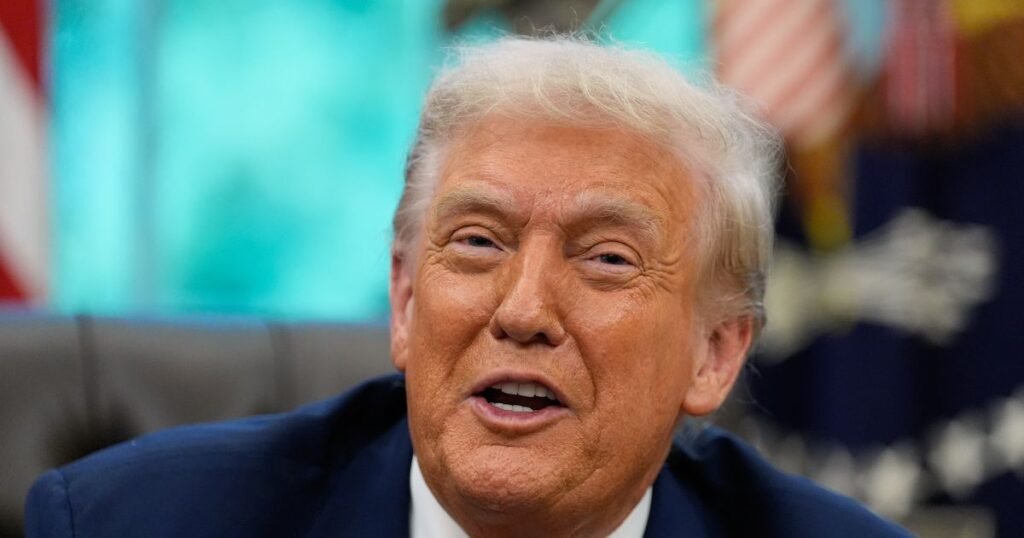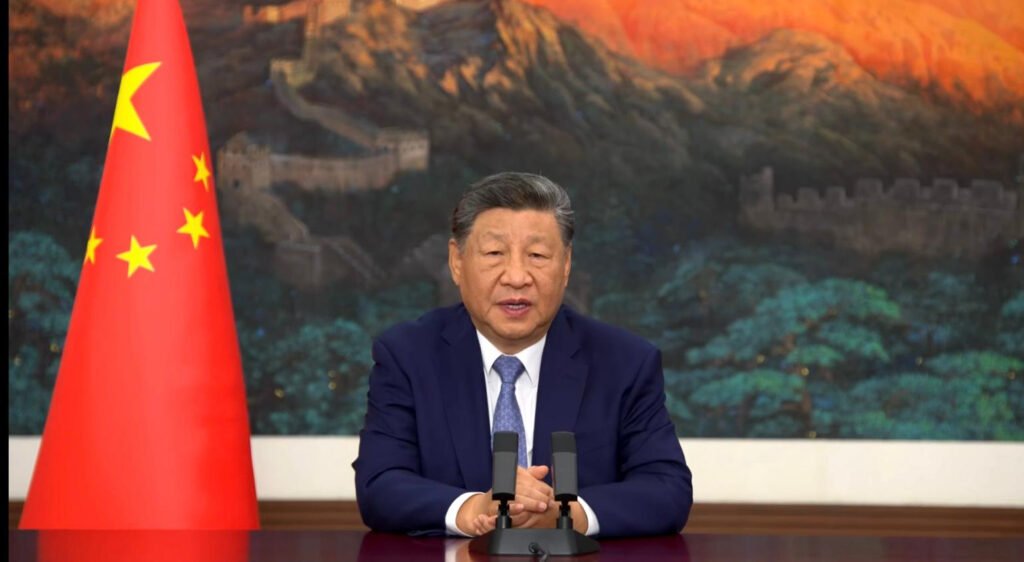Once the reporter finished her question on the the GPS jamming, Trump continued: “Nobody knows where it came from, but they did take away her ability to use the phone.” He added: “You know, sometimes that’s a good thing. Sometimes if it happened to me, I’d be very happy.”
Beneath the joke, he was unexpectedly au fait with von der Leyen’s phone reception problems, and there was a clear suggestion the two had been unable to get in touch. It was more evidence that the Commission president was increasingly, if only for now, nearing that holy grail of EU leaders — a default European interlocutor for a U.S. president.
Streamlined comms
Within the famously messy hierarchies of EU leadership — spread across numerous national governments and Brussels institutions — von der Leyen has won through.
During the August visit of European leaders to the White House, she was the only EU institutional figure to show up. Gone was the usual two-for-one combo with the European Council president.

The message was clear: Brussels is streamlining its transatlantic voice. Von der Leyen may not speak for all of Europe — but she’s increasingly the one who picks up the phone. And the one whom Trump calls back.
It wasn’t always this smooth. Early efforts to engage with Trump’s team were clunky, the two EU officials admitted — not helped by the revolving doors in the U.S. administration during his first months in office.





